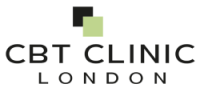
OCD Therapy CBT Private Clinic East London
OCD Therapy CBT Private Clinic East London
Obsessive-Compulsive Disorder or OCD is a common, chronic and long-lasting disorder of the brain in which an individual has uncontrollable, reoccurring thoughts [obsessions] and behaviours [compulsions] that he or she feels the urge to repeat. The disorder can be treated with medication, psychotherapy or a combination of both. Some individuals respond well to treatment, whereas some continue to experience symptoms. Some individuals with OCD can have other mental disorders, such as anxiety, depression and body dysmorphic disorder.
Obsessive-Compulsive Disorder and CBT Therapy Treatment
We welcome telephone enquiries in the first instance, call our offices on 0207 157 9924 we are closed on Sundays. Opening hours: Monday 8am–9pm, Tuesday 8am–9pm, Wednesday 8am–9pm, Thursday 8am–9pm, Friday 8am–9pm, Saturday 10am–5pm.) or you can send us a message via the Contact Form online.
Age, Sex and Obsessive-Compulsive Disorder Diagnosis
Obsessive-Compulsive Disorder can affect adults, adolescents and children. Most individuals are diagnosed by the age of 19, typically there is earlier onset in boys than in girls, but onset after the age of 35 can happen.
It is common for all individuals to double check things at times however those individuals with Obsessive-Compulsive Disorder cannot control their throughts or behaviour, even when such thoughts and behaviours have been recognised as excessive. Individuals with Obsessive-Compulsive Disorder have symptoms of obsessions, compulsions, or both and they can interfere with every aspect of daily life, from work, to school and personal relationships.
OCD Common Obsessions: Obsessions are repeated thoughts, urges, or mental images that can cause the individual anxiety:
- Fear of germs or contamination
- Unwanted forbidden or taboo thoughts, involving sex, religion and harm
- Aggressive thoughts towards the self or others
- Having things symmetrical or in a perfect order
Individuals with OCD do not want to have these thoughts and can find them disturbing. In most cases individuals with OCD realise that these thoughts do not make sense. These obsessions are typically accompanied by intense and uncomfortable feelings such as fear, disgust, doubt, or a feeling that things have to be done in a way that is just right. These obsessions are time consuming and can get in the way of important daily tasks.
Compulsions are repetitive behaviours than an individual with Obsessive-Compulsive Disorder feels the urge to do in response to an obsessive thought:
- Excessive cleaning and/or hand-washing
- Ordering and arranging things in a particular, precise way
- Repeatedly checking on things, such as checking to see if the dor is locked, or that the oven is turned off
- Compulsive counting
Compulsions are behaviours or thoughts that an individual uses with the intention of neutralising, counteracting, or making their obsessions go away. Individuals with OCD realise that this is only a temporary solution but without a better way to cope they often rely on their compulsions as a temporary escape. These compulsions are time consuming and can get in the way of important daily tasks.
These individuals often spend at least an hour a day on such thoughts or behaviours, they do not get pleasure when performing such behaviours or rituals but they may feel brief relief from the anxiety the thoughts may be causing them, and they can experience significant problems in their daily lives due to those thoughts and behaviours. A tic disorder can also be common with some individuals with Obsessive-Compulsive Disorder. Motor tics are sudden, brief and repetitive in nature such as eye blinking, facial movements, shoulder shrugging or head jerking. Common vocal tics can include repetitive throat clearing, sniffing or grunting.
Canary Wharf OCD Private Therapy CBT Clinic
These symptoms can come and go, ease over time or become worse. CBT Therapy is the most effective treatment for the symptoms of OCD and you can find more about how we treat OCD and many other common mental health difficulties with us here in Canary Wharf.
Related Posts
20 Things That Make Intrusive Thoughts Worse
20 Things That Make Intrusive Thoughts Worse We've spent a look of time...
Chronic Pain
Chronic Pain: The International Association for the Study of Pain (IASP) defines...
Past and Present Focus in CBT Therapy
Although CBT is a therapy that predominantly focuses time, effort, change,...
Antidepressant Medications: What are they?
Everyone feels low from time to time, so it’s not always easy to know when it is...




